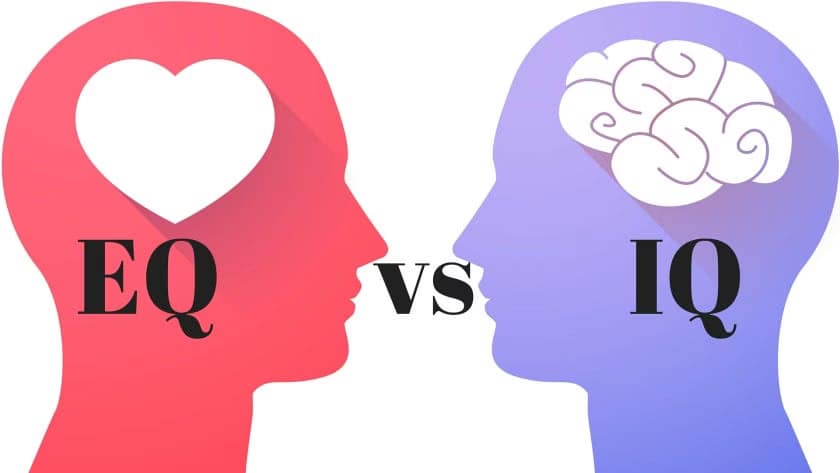In the world of personal and professional development, two acronyms often dominate discussions about success: EQ (Emotional Quotient) and IQ (Intelligence Quotient). While many people are familiar with these terms, understanding how they interact—and why both are crucial—can unlock new levels of achievement in life.
What Are EQ and IQ?
Before diving into their relationship, let’s clarify what each term means:
- IQ (Intelligence Quotient): This measures cognitive abilities such as logical reasoning, problem-solving, memory, and analytical thinking. It’s typically assessed through standardized tests and has long been considered a key predictor of academic and career success.
- EQ (Emotional Quotient): Also known as emotional intelligence, this refers to your ability to recognize, understand, manage, and influence emotions—both your own and those of others. EQ encompasses skills like empathy, self-awareness, social awareness, and emotional regulation.
While IQ focuses on “thinking,” EQ centers on “feeling.” But here’s the catch: neither exists in isolation. Together, they form the foundation of human capability.
Why IQ Alone Isn’t Enough
For decades, society placed immense value on IQ as the ultimate measure of potential. After all, it’s easy to quantify and correlates strongly with academic performance. However, research increasingly shows that high IQ alone doesn’t guarantee success or happiness.
Consider this scenario: A brilliant scientist with an extraordinary IQ struggles to collaborate effectively with colleagues because she lacks interpersonal skills. Despite her intellectual prowess, her inability to navigate team dynamics holds her back from achieving meaningful breakthroughs.
This example highlights a critical truth: raw intelligence is only part of the equation. Without emotional intelligence, even the smartest individuals may find themselves struggling in relationships, leadership roles, and everyday interactions.
The Power of Emotional Intelligence
Unlike IQ, which tends to remain stable throughout life, EQ can be developed and improved over time. And its impact is profound. Studies have shown that emotional intelligence plays a significant role in determining workplace success, mental health, and overall well-being.
Here’s why EQ matters so much:
- Better Communication: People with high EQ excel at listening, expressing themselves clearly, and resolving conflicts peacefully.
- Stronger Relationships: Empathy and understanding foster deeper connections, whether in personal friendships or professional partnerships.
- Resilience Under Pressure: Emotionally intelligent individuals handle stress more effectively by regulating their emotions and maintaining perspective.
- Effective Leadership: Leaders with high EQ inspire trust, motivate teams, and create positive work environments.
- Self-Awareness: Understanding your strengths, weaknesses, and triggers allows you to grow personally and professionally.
In short, EQ equips us with the tools to thrive in complex social situations—a skill set that no amount of book smarts can replace.
Striking the Right Balance
The most successful people tend to strike a balance between EQ and IQ. Think about iconic figures like Oprah Winfrey, Elon Musk, or Malala Yousafzai. Each possesses remarkable intellect but also demonstrates exceptional emotional intelligence, enabling them to connect deeply with audiences, lead movements, and drive change.
So, how can you cultivate both EQ and IQ?
Boosting Your IQ:
- Engage in lifelong learning: Read books, take courses, and stay curious about the world around you.
- Solve puzzles and play strategy games to sharpen your problem-solving skills.
- Surround yourself with intellectually stimulating people who challenge your thinking.
Developing Your EQ:
- Practice active listening: Focus fully on what others are saying without interrupting or judging.
- Reflect on your emotions: Journaling or meditating can help you become more aware of your feelings and reactions.
- Seek feedback: Ask trusted friends or mentors for input on how you handle emotions and relationships.
- Show empathy: Put yourself in someone else’s shoes to better understand their perspective.
Real-Life Applications
Let’s look at some practical examples where EQ and IQ complement each other:
- Negotiations: A savvy negotiator uses IQ to analyze data and craft strategies while relying on EQ to read body language, build rapport, and diffuse tension.
- Parenting: Raising children requires not just knowledge (IQ) about child development but also patience, empathy, and adaptability (EQ).
- Entrepreneurship: Starting a business demands innovative ideas (IQ) and the ability to inspire employees, attract customers, and persevere through setbacks (EQ).
By leveraging both types of intelligence, you can tackle challenges holistically and achieve greater outcomes.
Final Thoughts
In today’s fast-paced, interconnected world, success isn’t just about being smart—it’s about being wise. IQ provides the foundation for intellectual growth, while EQ emp98owers us to navigate the complexities of human interaction. When combined, these two forces create a powerful synergy that propels individuals toward fulfillment and achievement.
So, ask yourself: How balanced is my EQ-IQ ratio? By investing in both dimensions of intelligence, you’ll not only enhance your capabilities but also enrich your life and the lives of those around you.
What steps will you take today to nurture your EQ and IQ? Share your thoughts in the comments below!
Discover more from Pasindu Lakshan Perera
Subscribe to get the latest posts sent to your email.




